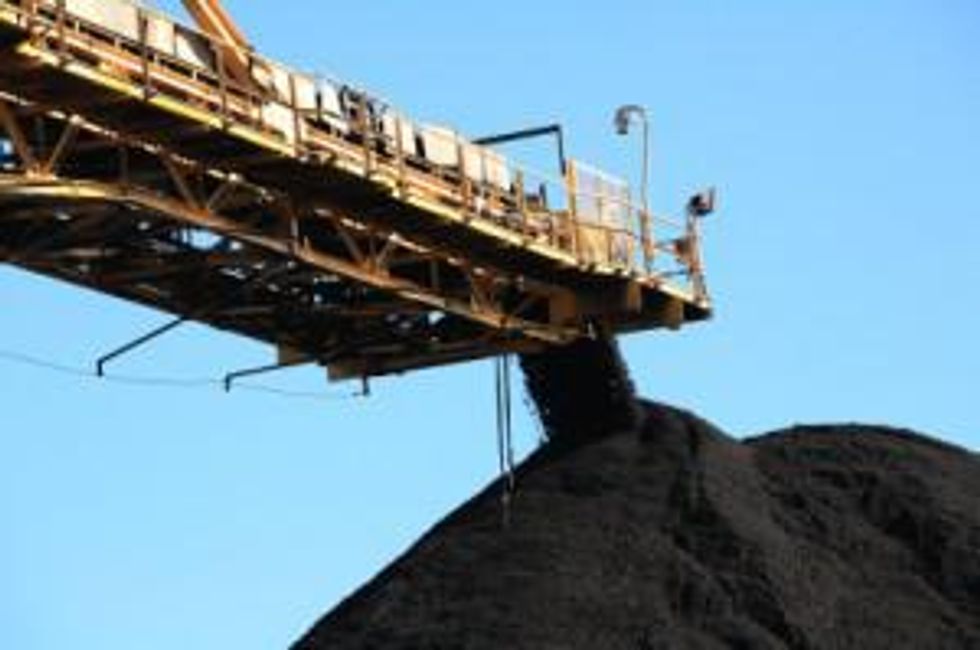Chinese policy changes are carrying sway in international markets as the country takes strides to incorporate market-friendly reforms.
The new year is bringing changes to international coal markets, in part because China, the world’s largest consumer of coal, is implementing policy changes that target the country’s thermal and coking coal markets.
Coking coal export tax removed
In late December, China “covertly” lifted a 40-percent tax on coke — a product of coking coal that is used in steelmaking — exports imposed on domestic suppliers after a recent ruling against the practice was delivered by the World Trade Organization.
Chinese coke exports dried up in 2012, with a mere 1 million tons (Mt) sent abroad compared to the 2007 average of 15 Mt.
The withdrawal of the tax will be largely positive for domestic coking coal producers, enabling them to access a wider range of potential markets. Exports, should they rebound to the average 2007 level, will correspond with a demand increase of 20 Mt of coking coal, equivalent to approximately 14 Mt coke.
In a note to investors, Brean Capital predicted that the tarrif removal will negatively impact the seaborne met coal market as Chinese coke floods international markets, Platts reported.
An increased supply of Chinese coke would negate the need for seaborne coking coal in coke- and steel-producing countries like India and Japan, Brean analyst Lucas Pipes argues in the article.
Pipes expects that the net result of the measure could be a 15-Mt reduction in seaborne coking coal demand — equivalent to around 5 percent of the total global met coal seaborne market if China’s coke production levels return to the 2007 average.
Current Q1 coking coal Australian benchmark prices averaged $165/Mt FOB, but could drop if the dynamic plays out as Pipes believes it will.
Thermal market reforms
In China’s other coal market, the country’s price regulator announced that beginning January 1, it will no longer set the prices negotiated between thermal coal producers and power providers, according to a statement issued by the National Development and Reform Commission.
Previously, compulsory thermal coal supply contracts set the prices that power providers paid to steam coal producers. The system was created in an effort to balance power supply and availability across the country’s regions and cities.
Current thermal prices paid by Chinese utilities are low, with Australia’s benchmark spot thermal prices hovering around the $85 mark, 30 percent lower than 2011.
Contracts for coal with a heating value of 5,500 kilocalories a kilogram for shipment to South China from Indonesia in the second quarter remained at $86.10 per ton, while the February contract was unchanged at $85.10 a ton.
The low prices are a key consideration in the timing of the policy change, as the government is exposing energy markets to international prices at a time when there is little risk of seeing a dramatic change to energy prices.
“The move to cancel limits on thermal coal prices will not lead to sharp price hikes as demand is sluggish amid the global economic slowdown,” Zhang Yongjun, an analyst with the China Center for International Economic Exchanges, said to People’s Daily Online.
China’s world-leading thermal imports have grown rapidly in recent months, with Platts reporting that the country imported 14.45 Mt in November, a 30-percent increase from the previous month and a monthly record.
The removal of price ceilings is also likely to result in further increases to the country’s thermal imports as domestic prices will eventually rise, making lower-cost international providers more competitive, Reuters reported.
China’s demand for thermal coal appears to be unstoppable. Power consumption in the country grew 7.6 percent year on year to 413.9 billion kilowatt-hours (kwh) in November, more than October’s 6.1 percent growth, according to China’s National Energy Administration.
Thermal imports continue to flow primarily from Indonesia and Australia, from which China imported almost 9 Mt of steam coal, while US imports fell by 63 percent in November to just 155,000, Platts reported.
Thermal coal demand is, however, expected to rise in the US, despite the fact that its share within the US energy mix has fallen for the last three years. A report released in October by the US Energy Information Administration pegs the reverse in coal use on a forecast rise in natural gas prices after record-low prices have kept new gas projects from breaking ground.
But that very same gas-coal relationship is expected to drive US domestic coal consumption down sharply in the coming years, from 697 Mt annually in 2011 to 600 Mt in 2017, the International Energy Agency predicted in its (IEA) medium-term coal market report last month.
The same IEA report also notes that China’s growing coal imports are expected to top 300 Mt in the next five years.
Securities Disclosure: I, James Wellstead, hold no direct investment interest in any company mentioned in this article.
Related reading:
